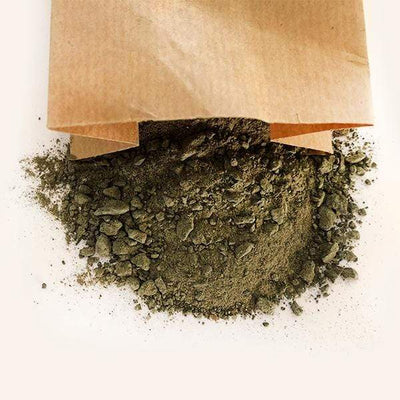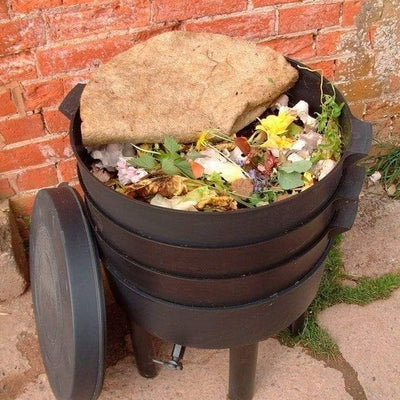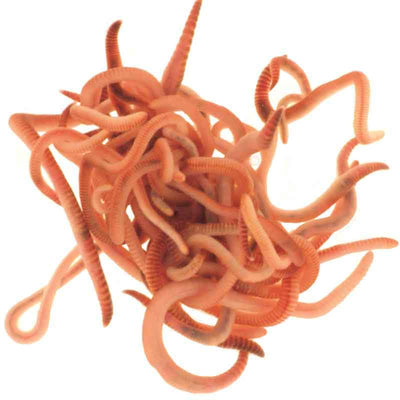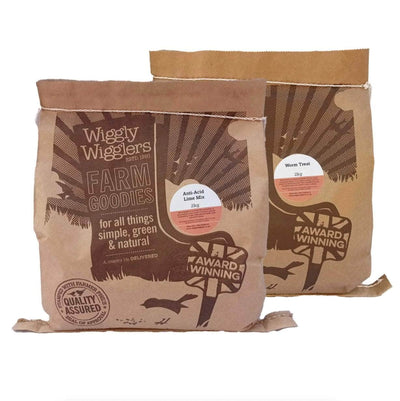What Earthworms Do, Why They Matter, and How We Can Help Them Thrive
In the grand scheme of life on Earth, earthworms are far from flashy. But don’t let their low profile fool you – they are among the most influential creatures on the planet. Quietly toiling beneath our feet, they build soil, recycle waste, support biodiversity, and – quite literally – shape the land.
And no one championed them more than Charles Darwin, who spent over 40 years observing, measuring, and marvelling at their power.
Darwin’s Devotion to Earthworms
Darwin’s final book, published in 1881, was The Formation of Vegetable Mould through the Action of Worms. It became an instant bestseller – not bad for a book about soil.
His conclusion?
“It is doubtful whether there are many other animals which have played so important a part in the history of the world.”
And another favourite:
“The plough is one of the most ancient and most valuable of man’s inventions; but long before he existed the land was in fact regularly ploughed, and still continues to be thus ploughed by earthworms.”
Darwin’s experiments showed that earthworms are responsible for moving 10–20 tonnes of soil per acre per year, burying stones, leaves, and even the remains of ancient Roman villas under new layers of worm-made topsoil. Their constant activity enriches the land, structure, and fertility.
How Many Earthworms Are in a Healthy Acre of Soil?
In rich, undisturbed soil – the kind of soil we aim for in regenerative farming – you can expect to find up to 1 million earthworms per acre. That’s a living, wriggling network beneath every step you take.
In fact, the density and diversity of earthworms is now recognised as a key indicator of soil health. More worms = more biological activity = better soil structure, nutrient cycling, and water retention.
Sadly, when things have gone awry and we farm intensively without adding organic matter those numbers can fall to as low as 50,000 per acre. That’s a stark difference – and a clear sign of the impact our farming and gardening practices have on underground life.
Lower Blakemere’s Regenerative Mission – and the Worms That Will Thank Us

Here at Lower Blakemere Farm, we’re working hard to reverse that trend. By moving away from heavy cultivation, reducing chemical inputs, and focusing on soil biology, we’re aiming to create the right environment for earthworm populations to recover and thrive.
We're measuring this directly through worm counts as part of our wider regenerative indicators. Alongside carbon audits, cover cropping, and mob grazing, worm numbers are one of the simplest – and most powerful – signs of progress.
We’re not just feeding crops anymore. We’re feeding the soil. And the worms, it turns out, are some of the first to respond.
Worms in the Johnson-Su Bioreactor – A Natural Alliance
We’ve also incorporated Johnson-Su bioreactors into our composting system. These passive, fungal-dominant composters are ideal habitats for worms. While they aren’t essential to the process, their presence in the system speeds up decomposition, increases microbial life, and enriches the final compost.
Their castings help inoculate the compost with beneficial bacteria, enzymes, and humic substances – making the end result more than just a soil conditioner. It becomes a biological inoculant that helps restore degraded soil, support root systems, and fuel microbial partnerships below ground.
What Worms Do – And Why It Matters

Whether you’re on a farm or in your garden or allotment, worms are working around the clock. Here’s what they do best:
1. Process Waste
Composting worms (Dendrobaena veneta, Eisenia andrei) devour veg peelings, coffee grounds, cardboard, and other organic matter – turning it into vermicompost, a nutrient-rich material that plants thrive on.
2. Build Soil Structure
Garden earthworms (Lumbricus terrestris) pull surface matter into their burrows, improving aeration, drainage, and root penetration. Their tunnels also allow oxygen, water, and microbes to travel more freely underground.
3. Produce Worm Casts – Soil Gold
Worm casts contain:
-
Up to 5x more nitrogen
-
7x more phosphorus
-
11x more potassium
…than the surrounding soil. They’re also packed with microbial life and hold water more efficiently – ideal for reducing reliance on fertilisers and irrigation.
A Soil Solution Close to Home – and Good for the Planet
In the UK, we throw away around 6.6 million tonnes of food waste every year. Worms offer a simple, effective, homegrown solution to improve our soil, boost biodiversity, and helping each of us do our bit for a more resilient, nature-friendly future.
Earthworms: More Than Just Garden Guests
Charles Darwin saw earthworms not as pests or oddities, but as the original land managers – working silently and ceaselessly to support life above ground. His fascination with them wasn’t just scientific. It was deeply respectful.
“Without the work of this humble creature, who knows what the surface of the land would look like.”
And he was right.
📦 If you're keen to encourage more of these unsung heroes into your own patch of earth, we supply both composting worms and garden worms from our family farm in Herefordshire. They’ll do what they do best: build better soil, one cast at a time.






